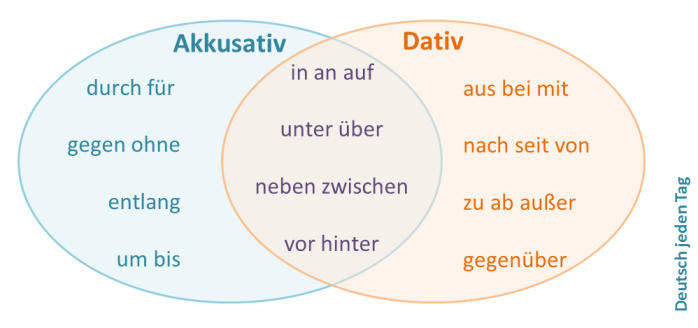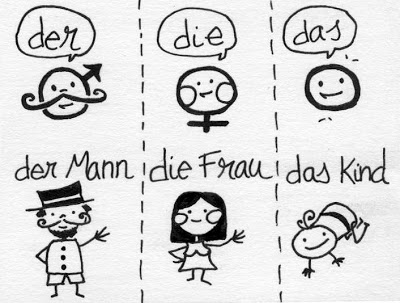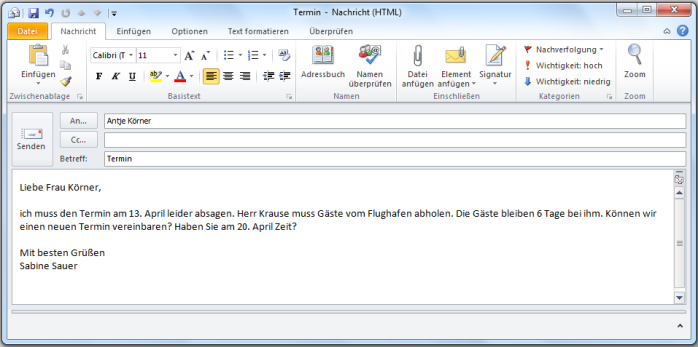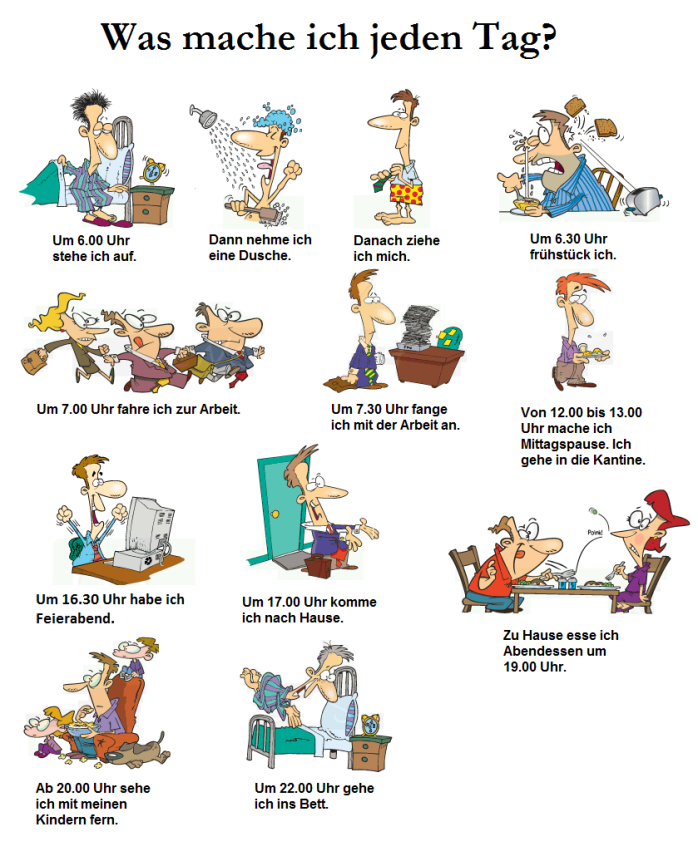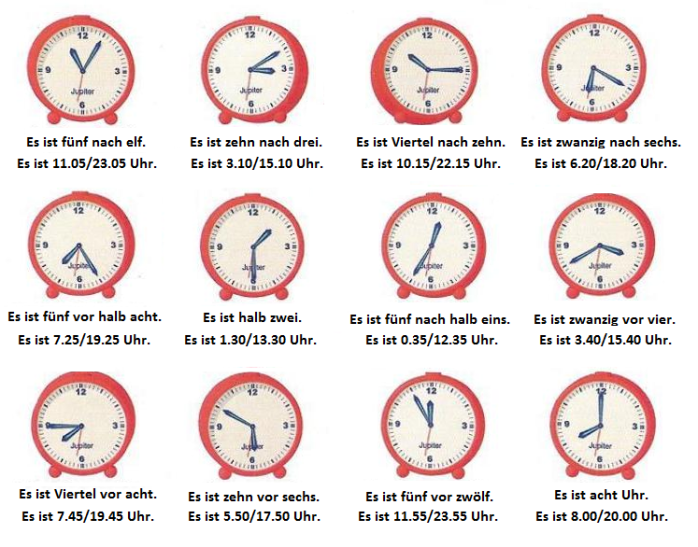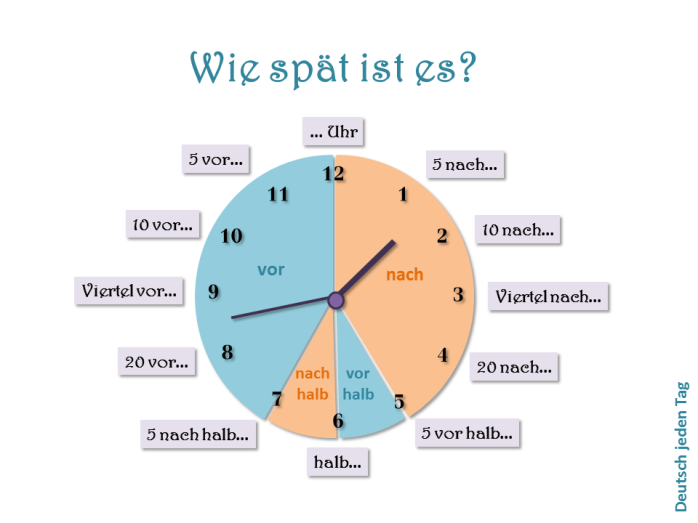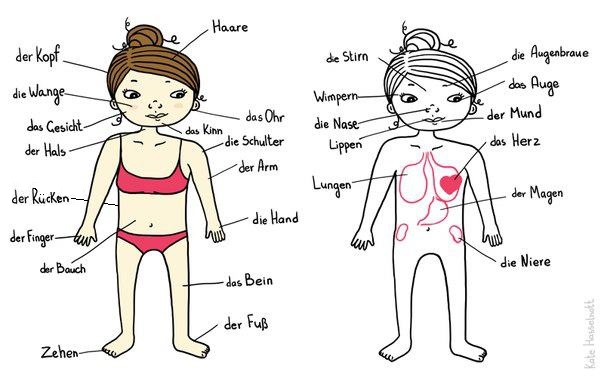Hi everyone!
I believe that most of the people knows how to say “no” in German, even those ones who don’t study it. My mother was visiting me in Germany last month and “Ja oder Nein” are for sure words that she can speak now! But this is not the only way to negate in German and this is what we are going to see in this post today!
Nicht
The German adverb “nicht” is the English equivalent of “not” and is used in a sentence when:
- The noun to be negated has a definite article:
Er trinkt das Bier nicht. (He is not drinking the beer.)
- The noun to be negated has a possessive pronoun:
Er mag seine Arbeit nicht. (He does not like his work.)
- The verb is to be negated:
Ich fotografiere nicht. (I do not photograph.)
- An adverb/adverbial phrase is to be negated:
Sie schwimmt nicht schnell. (She does not swim fast.)
- An adjective is used with the verb sein:
Ich bin nicht sicher. (I am not sure.)

Bloss nicht ärgern
The position of nicht is not always so clear, but it generally precedes adverbs, verbs, separable verb prefix, verb infinitives, adjectives and prepositional phrases and follows adverbs that can be organized chronologically.
Ich kann überhaupt nicht singen. (I can not at all sing.)
Er wird nicht sofort kommen. (He will not come right away.)
Kein
Depending on the sentence, the German adjective kein can have different meanings: no, not any, not a, none, no one, nobody. It is used in a sentence when:
- The noun to be negated has an indefinite article:
Ich habe keinen Fotoapparat. (I have no camara.)
Ich möchte keinen Tennisschläger zum Geburtstag. (I do not want tennis racket for birthday.)

Nur keine Panik
Note! Although ein has no plural, kein does and follows the Gemischte Deklination.
Teilnegation
When nicht and kein negate only a clause, then usually the second clause that follows will begin with the conjunction sondern.
Ich fahre nicht mit dem Auto, sondern mit dem Zug. (I won’t travel with the car, but with the train.)
Ich fahre nicht am Samstag, sondern am Sonntag. (I won’t travel on Saturday, but on Sunday.)
Ich habe keinen Kaffee, sondern Tee bestellt. (I didn’t order coffee, but tea.)
Sie hat sich keine Jacke gekauft, sondern eine Hose. (She didn’t buy a jacket, but trousers.)
“N” Negationswörter
The other n-words are the pronouns niemand (nobody, no one) and nichts (nothing) and the adverbs niemals ( never), nie (never) and nirgendwo (nowhere).
Wenn niemand niemals nirgendswo hingeht, dann kann keiner niemanden treffen, nicht wahr? Keine Sorgen! Dies wird nie geschehen.
(If nobody never goes anywhere, then no one could meet anybody, is that not so? No worries! This will never happen.)
The indefinite pronouns nichts and niemand can replace either a subject or object:
Niemand hat mich heute gesehen. (Nobody saw me today.)
Ich will mit niemanden spielen. (I don’t want to play with anybody.)
Nichts schmeckt gut. (Nothing tastes good.)
Er will nichts essen. (He doesn’t want to eat anything.)
Nichts is an undeclinable pronoun and niemand was for a long time declinable, but it is now correct to also leave it undeclined (both ways are acceptable). Niemand is a singular word that doesn’t have a plural and its declination is: niemand (nominative), niemandes (genitive), niemandem (dative) and niemanden (accusative).
Er hat heute niemand(en) gesehen. (He saw no one today.)
Nichts is not the plural or the declination of nicht. They can not be interchanged because nicht is an adverb that means “not” and nichts is a pronoun that means “nothing”.
The adverbs niemals, nie and nirgendwo can stand alone, be placed before a verb or at the end of a phrase:
Er hat mich nie angerufen. (He never called me.)
The word order of this negated sentence allows for a contrasting negation with sondern:
Er hat mich nie angerufen, sondern immer besucht. (He never called me, he always visited me.)
Otherwise, these negation words are often placed at or near the end of the sentence:
Er ruft mich nie an. (He never calls me.)
Sie besucht mich niemals. (She never visits me.)
To emphasize the negation, the negation adverb can be placed in the front of the sentence:
Nie hat er mich angerufen! (He has never called me!)
Nirgendwo ist es sicher! (Nowhere is safe!)
Die Frage
Something important to learn is that for a negative question, the positive answer is given with doch and the negative remains unchanged. The following example shows a positive and a negative question with their answers. Compare the structure:
Kommst du mit? (Are you coming?)
Nein, ich komme nicht mit. (No, I am not coming.)/Ja, ich komme mit. (Yes, I am coming.)
Kommst du nicht mit? (Are you not coming?)
Nein, ich komme nicht mit. (No, I am not coming.)/ Doch, ich komme mit. (Yes, I am coming.)
For questions with schon, the answers are given with noch (nicht/kein…):
Hast du schon ein Brot gebacken? (Have you already baked a bread?)
Nein, ich habe noch kein Brot gebacken. (No, I have not baked any bread yet.)
Hast du schon einmal hässliche Schuhe gekauft? (Have you ever bought ugly shoes?)
Nein, ich habe noch nicht hässliche Schuhe gekauft. (No, I have not bought ugly shoes yet.)
For questions with noch, the answers are given with (nicht/kein…) mehr:
Gehst du noch zu der Party? (Are you going to the party yet?)
Nein, ich gehe nicht mehr zu der Party. (No, I am not coming to the party anymore.)
It is also important to know the German negation words opposites, to know how to reply to questions involving such words.
|
Positive |
NEGATIVE |
EXAMPLE |
| Personen |
jemand, irgendjemand, irgendwer |
niemand, keiner |
Wird jemand dich am Bahnhof treffen? (Will somebody meet you at the train station?)
Nein, niemand wird mich am Bahnhof treffen. (Nobody is going to meet me at the train station.) |
| Sachen |
etwas, alles |
nichts |
Hast du etwas auf dem Flug gegessen? (Did you eat anything on the flight?)
Ich habe nichts auf dem Flug gegessen.(I ate nothing on the flight.) |
| Zeit |
jemals, oft, immer, manchmal |
nie, niemals |
Hast du schon jemals Mexiko besucht? (Have you ever visited Mexico?)
Nein, dort war ich noch nie. (No, I have never been there.) |
| Ort |
irgendwo, überall |
nirgendwo, nirgends |
Irgendwo auf dem Regal muss mein Buch liegen. (Somewhere in my shelf, must be my book.)
Ich kann ihn aber nirgends finden! (But I can’t find it anywhere!) |
| Richtung |
irgendwohin |
nirgendwohin |
Gehst du am Wochenende irgendwohin? (Are you going somewhere on the weekend?)
Nein, leider gehe ich am Wochenende nirgendwohin. (No, unfortunately I am not going anywhere on the weekend.) |
That is all for today!! 😀
